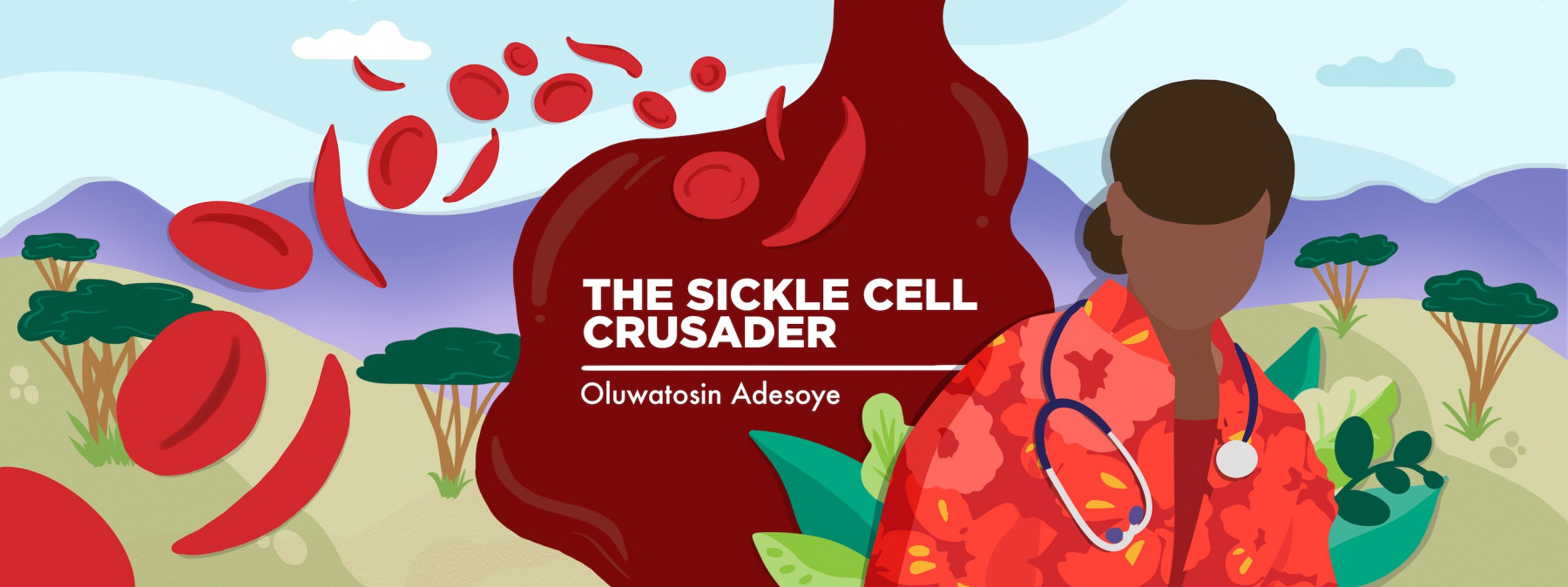Navigating romantic relationships as a sickle cell patient
A columnist explains how she guards her heart and maintains happiness
Written by |

Living with sickle cell disease presents unique challenges that can impact various aspects of one’s life, including romantic relationships. The experiences of those with sickle cell disease vary greatly, which affects how each of us approaches and maintains our relationships.
In over three decades of living with the disease, I’ve been in a few relationships; some ended quickly, while others lasted for years. Many adult sickle cell warriors, like myself, sometimes find themselves single for various reasons.
One reason could be personal choice, as some warriors opt to avoid complicating their health challenges with relationship issues. Another factor is the difficulty in finding a partner who understands the disease and is willing to provide support.
Furthermore, finding a partner with a compatible genotype to eliminate the risk of having children with the disease can pose a significant hurdle. The presence of stigmas and myths surrounding sickle cell may also deter potential partners from pursuing relationships with patients. Other factors include overwhelming health challenges, emotional burdens, and financial strains.
My experience
Before committing fully to a relationship, I have some criteria that must be met, which are my precautionary measures to protect my heart. They include ensuring that my partner is aware of my sickle cell status and its potential complications, genotype compatibility, and openness to exploring alternative options to prevent the transmission of sickle cell disease to potential offspring. I want a partner who truly loves and respects me, doesn’t assume he’s doing me a favor by being with me, and is with me through thick and thin. I constantly guard against emotional entanglements in romantic relationships that do not align with these core values.
Despite my firm belief in love, there have been numerous occasions when I wasn’t inclined to pursue relationships because of my health challenges. One notable example happened during medical school, when my health complications and the paramount goal of graduating successfully took precedence over romantic involvements. In my 20s, I sacrificed romantic relationships to earn my medical degree amid challenging circumstances — a goal I ultimately achieved and without regret.
After I started working as a physician, I began reconsidering relationships. I questioned whether I was prepared to discuss my sickle cell complications with a potential partner. I pondered if it was really necessary to be in a relationship.
After some time, I decided to explore relationships once more. I ended one quickly due to behavioral differences, while another ended with rejection stemming from my health challenges. This experience instilled a fear of rejection in me, and I ignored romantic advances when they came along. I’ve been single and self-sufficient for a long time, so it was easy to embrace it, which was my way of guarding my health and my heart.
Throughout my adult life, I have embraced certain principles that are fundamental to maintaining my happiness. These include:
- I know that I’m beautiful, intelligent, and a blessing to my generation. Sickle cell disease and its complications do not make me less of who I am.
- My happiness and success are not contingent on a romantic partner. I’m complete and sufficient. I am enough.
- Marriage is a great institution, but no one will pressure me into it unless I’m ready with the right partner and genuinely desire it.
- I recognize my worth and know that no man is doing me a favor by being in a relationship with me.
- Love extends beyond romantic relationships and can be found in the support and affection of family and friends.
- I’m committed to enjoying and embracing life, regardless of my marital status.
These ideals have helped me live happily as a single woman, ignoring societal pressure. I haven’t completely given up on love, but it isn’t a top priority for me.
Being single with sickle cell disease can evoke feelings of isolation, a lack of intimacy, and limited support, but it can also bring unexpected blessings, which I’ll discuss in a future column.
In conclusion, having sickle cell disease shouldn’t deter anyone from seeking love and companionship. While challenges may arise, many patients have found happiness in relationships and marriage. For those navigating the single life with sickle cell disease, remember that your worth transcends relationship status. Pursue happiness and success, and if desired, explore alternative avenues for building a family, like in vitro fertilization or surrogacy. Embrace your journey and trust that love will find its way to you in due time.
Note: Sickle Cell Disease News is strictly a news and information website about the disease. It does not provide medical advice, diagnosis, or treatment. This content is not intended to be a substitute for professional medical advice, diagnosis, or treatment. Always seek the advice of your physician or other qualified health provider with any questions you may have regarding a medical condition. Never disregard professional medical advice or delay in seeking it because of something you have read on this website. The opinions expressed in this column are not those of Sickle Cell Disease News or its parent company, Bionews, and are intended to spark discussion about issues pertaining to sickle cell disease.




Akello Patricia
At what age should people with sickle cells give birth?
How long do people with sickle cell live?
Ogonye ochola John
Am John from Benue state a sick cell patient, I am 32years old passing through leg pain that requires surgery but no money no any one to help me, please with the name of God any NGO should help me.